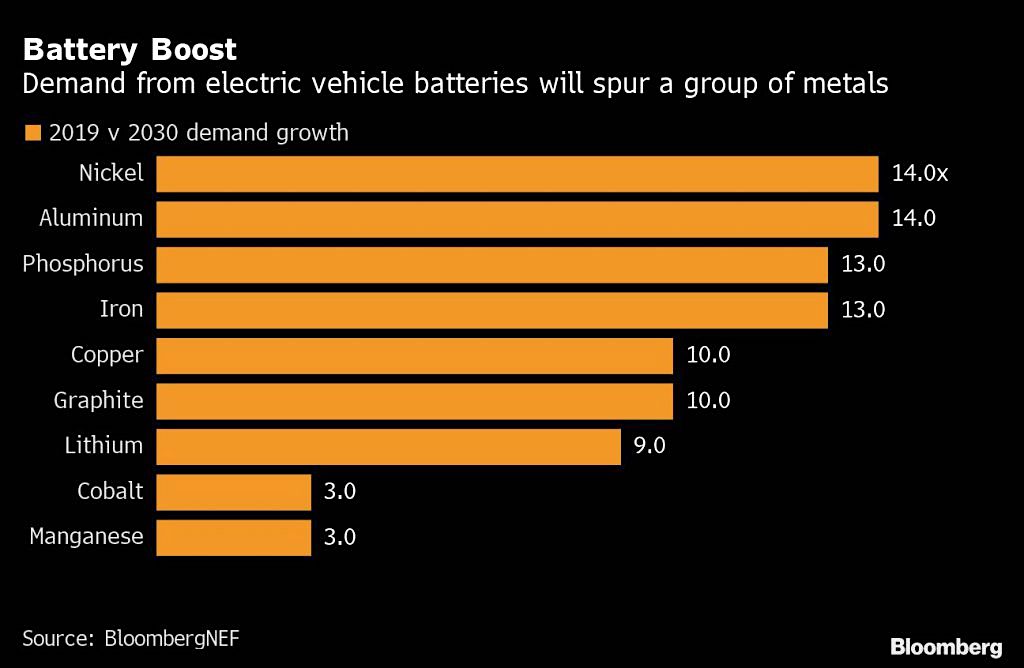Glencore in nickel supply talks with car, battery makers
The market for battery-grade nickel should be in a tight balance in the next two to three years as demand from lithium-ion battery producers picks up.
The Swiss company scored earlier this year an agreement with Tesla to supply it with the cobalt needed for two new car plants.
Glencore is already the main cobalt provider for German carmaker BMW. The metal, a key component for the cathodes of EV batteries, is sent from the miner’s Murrin Murrin nickel-cobalt operation in Australia. The company also owns nickel mines in Canada and New Caledonia and a refinery in Norway.
Last year, the company churned out 121,000 tonnes of nickel and sold 181,000 tonnes through its marketing business.
Nickel can help pack more energy into batteries and allows producers to reduce use of cobalt, which is more expensive and typically has a less transparent supply chain.
Tight balance
Demand for nickel is forecast to surge in coming years as companies from Tesla to Volkswagen add to their lineups of electric models. Musk in July promised a “giant” contract to miners that produce the metal in an “environmentally sensitive way.”
Musk said last month that his firm had been in contact with several nickel producers, without identifying the companies. Mining giant BHP (ASX, LON, NYSE: BHP) and Brazil’s Vale (NYSE: VALE) are said to be among them.
Tesla’s battery production capacity is expected to increase 570% over the next decade to 248 gigawatt hours, according to consultancy Benchmark Mineral Intelligence. One GWh of battery capacity is enough for about 18,000 EVs on average.
Analysts and industry actors alike expect the market for battery-grade nickel to be in a tight balance in the next two to three years as demand from lithium-ion battery producers picks up.

Some, such as BloombergNEF Allan Ray Restauro, predict a “significant” deficit as early as 2023, when nickel prices start to recover.
“Nickel demand will grow significantly off the back of batteries and the EV thematic, and that will pull nickel prices up,” BHP CEO Mike Henry said in an interview earlier this year.
Nickel dropped to a 14-month low of $10,865 a tonne CMNI3 in March, recovering since to $15,353. That’s still around 10% less than the prices reached in September last year, when nickel traded at five-year peaks.
With files from Reuters, Bloomberg




